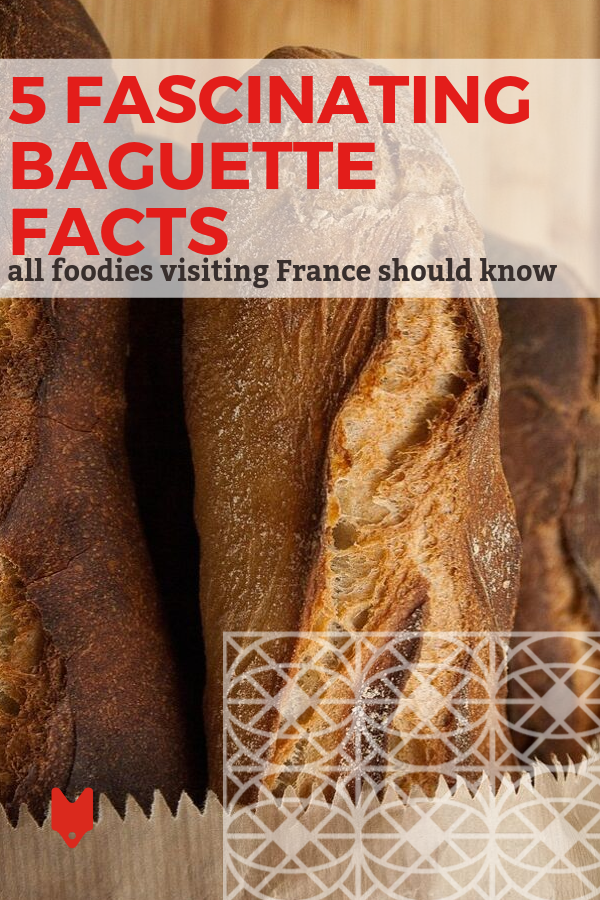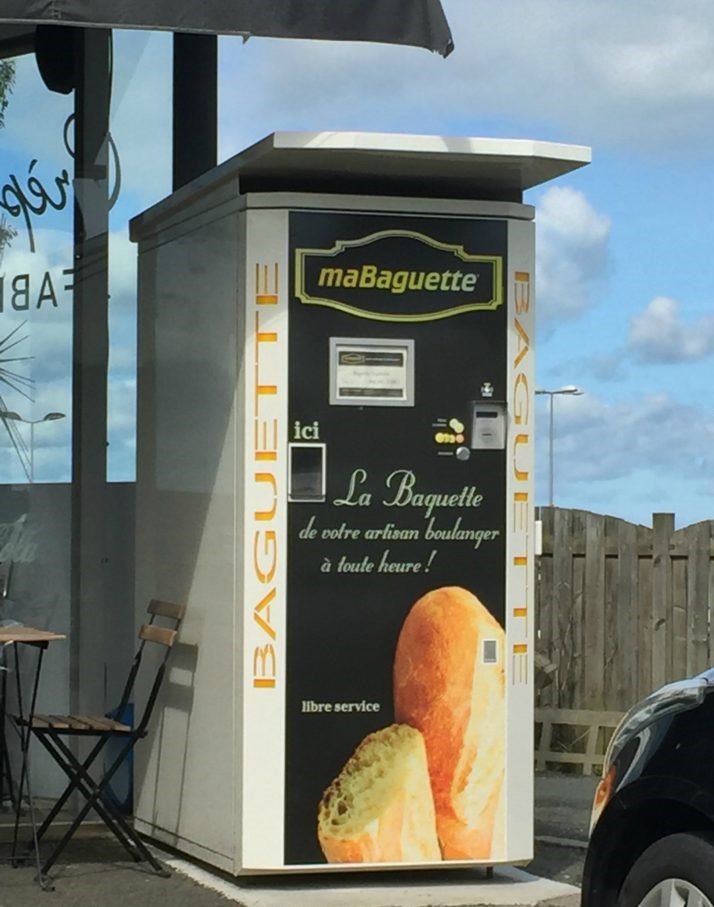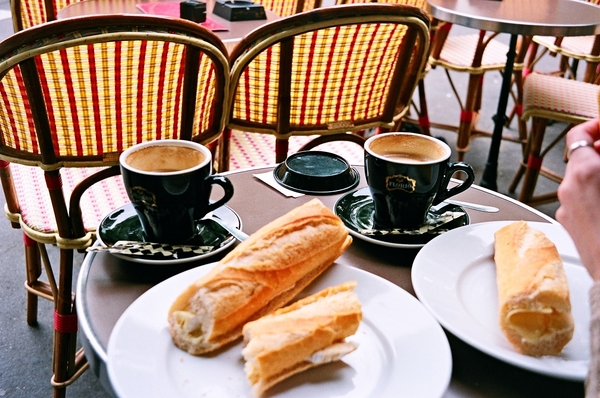Last Updated on December 19, 2025 by Emma Fajcz | Published: September 19, 2019
Name the most iconic foods of France, and you’ll definitely mention the baguette. It’s one of the most instantly recognizable foods around the world, and one of the best parts of any trip to Paris.
They’re also so dangerously tasty that common advice is to buy an extra one, since you’re probably going to eat one on the walk home from the boulangerie anyway!
We’re huge fans of freshly-baked, crusty, warm baguettes, and everything that they mean to French culture. So as much as we love eating these magnificent bread rolls, we also love learning everything about them! Here are the five strangest and most culturally curious things we’ve learned about French baguettes in our “research.”

READ MORE: Check out our top 5 picks for the best baguettes in Paris.
Five Random & Wonderful Facts about French Baguettes
1. Until 2015, Parisian bakers couldn’t take vacation at the same time
Would it surprise you to know that the French Revolution still controlled bakers’ summer holidays?
Until 2015, bakers of bread in Paris had to stagger their summer vacation time. Parisians need their daily bread, and the idea of all of the bakeries closing at the same time is the stuff of nightmares.
The law said that each year half the bakers could go on vacation in July, and the other half in August.
Now that’s a well-earned baguette-away!
And it turns out that this law was first introduced in 1790! The previous year, a Parisian baker named Denis François had been killed by a mob, angry because he hadn’t opened his store.
Say what you want about Paris, but you can’t deny that we love bread!
The next year, the law was passed to ensure that no matter the season, there would still be bread on the city streets. Any baker who took vacation time outside of their allotted dates received an €11 fine every day that they stayed shut. That’s some serious dough!
But finally, in 2015, the French government decided to overturn the law. Now, Parisian bakers can take their holidays whenever they want. So if you’re visiting Paris in summer, make sure your local boulangerie is open!

2. The baguette’s shape comes from bakers not wanting to get up early
Have you ever wondered exactly why the baguette is the shape it is?
Don’t get us wrong, it’s a great shape. It’s easy to carry, easy to slice, and an iconic symbol of French cuisine.
There are plenty of legends about where that shape comes from. The most popular seems to be that Emperor Napoleon I thought it would be easier for his troops to carry around in their trousers.
(Hopefully, this isn’t a tradition that French waiters like to continue today.)
Another myth is that the baguette is easier to tear apart with your hands, which means people didn’t need to carry knives wherever they went. So, the theory goes, baguettes were a great way of lowering knife crime in Parisian streets.
Luckily, neither is true!
To help keep people from overworking, in 1920 the government passed a law forbidding bakers to start their shifts before 4 a.m., or from working past 10 p.m. at night.
Now if you’re a baker, that’s great for your sleep cycle. But it’s not so great for your bread-making. Bread takes time to bake, and dough takes time to rise—so if you’re only allowed to start your day at 4 a.m., what do you do?
You create the baguette! The long, thin shape of the loaf exposes as much of the dough to heat as possible, meaning it bakes faster. This way, your bakery can pump out the same number of loaves in less time.
3. You can reserve your baguette online in France
Is this one really that surprising? At this point, it must be clear that here we love bread more than most people love anything!
But for Florian Maïly, a native of Burgundy, this love was painful. “I have two passions in life,” he said. “Getting up late and fresh bread.”
The problem with these passions? They come into conflict.
Bakeries tend to be the playgrounds of early risers, and most will sell out of the good stuff (including baguettes) before the rest of us wake up in time to go.
But inspiration struck Florian when he saw a poll claiming that 92 percent of French residents were “terrified” of a bread-less meal.
So in 2016, Florian decided to launch a start-up allowing people like himself to reserve their baguettes online. Finally—a way to eat baguettes and also not get up at dawn!
4. There are baguette vending machines
Ever woken up in the middle of the night needing a baguette?
Back in the day, this was a terrible moment. It’d be 2 a.m., and there was nothing you could do except cry and go back to sleep, waiting for the sweet release of dawn to signal the opening up of bakeries.
Luckily for lovers of midnight snacks and haters of social interaction, you can now get your baguettes from a machine.
Since 2013, a handful of cities across the country have unveiled their first 24-hour, 7 days a week baguette vending machines. While it goes without saying that these baguettes don’t even come close to the quality of the bread you can buy in a local boulangerie, it’s a trend to start watching closely.

5. The French are eating fewer baguettes than ever!
At this point, you might be thinking that the French love baguettes a little too much. Who else would have so many rules and traditions about just one type of bread?!
(And we didn’t even mention the laws about the length and weight of baguette! If it’s not 55–65 cm long and 250–300 grams heavy, well…it’s not a baguette. You’re also only allowed four ingredients–flour, yeast, salt, water–and have to sell it in the same place you bake it.)
Rules aside, France is even trying to get the baguette recognized by UNESCO as part of their cultural heritage!
But!
It turns out that the French are consuming fewer baguettes than ever before. In 1900, the average French person ate more than three baguettes every day.
By 1970, that number had fallen to just one baguette per day. And these days, people eat just half a baguette on a daily basis.
Now, half a loaf of bread every day might still seem like a lot of white bread to consume. But for our great-grandfathers of the early 20th century, that’d be heresy!
The baguette is probably safe from ever dying out, though. It’s one of the most loved and easily recognizable breads from around the world, and still at the top of every traveler’s bucket list when they go to Paris!

This article first appeared on the Everyday Food Blog.








